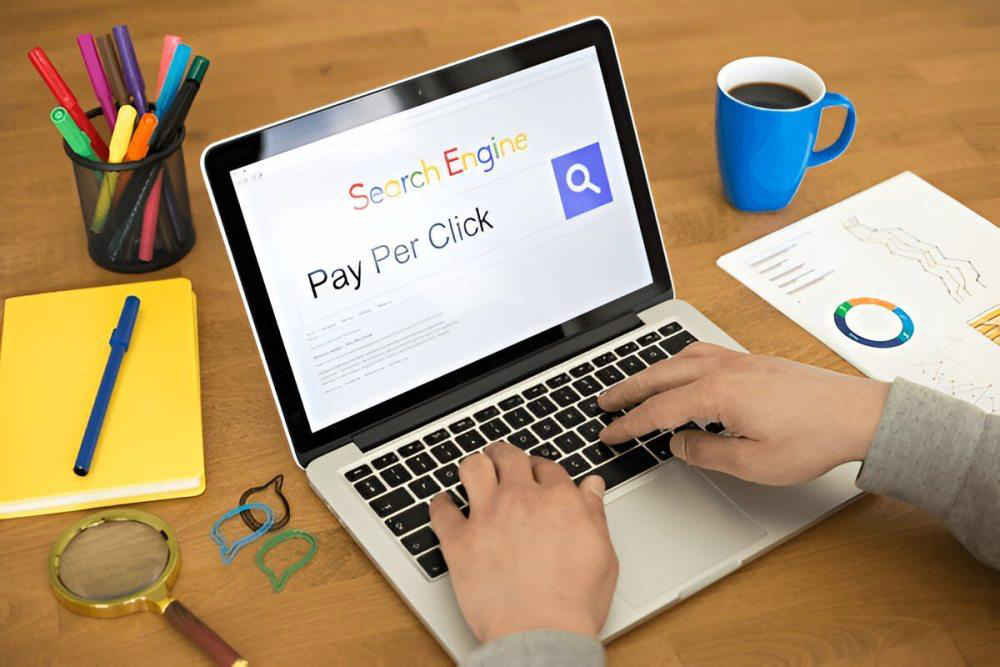Pay per click marketing sounds simple. You run an ad, someone clicks, and you get traffic. But, just because it’s simple doesn’t mean it’s easy. And if you’re not careful, you risk spending your entire budget and having very little left over.
Whether you’re new to PPC or trying to fix a campaign that’s not delivering results, know that the common traps can save you money and headaches. But the good news is. Most of these mistakes are easy to fix once you spot them. With a bit of planning, testing, and smarter decisions, you can turn a leaky campaign into a profitable one without doubling your budget or effort.
Let’s break down seven pay per click marketing mistakes beginners make and how you can avoid them.
1. Ignoring Keyword Match Types
One of the first things you set up in a PPC campaign is keywords. But not all keyword matches are created equal. Beginners often leave their keywords on broad match by default.
That means your ad could show for searches that are only loosely related to your product or service.
Instead, use a mix of match types:
- Broad Match Modifier for reach
- Phrase Match for control
- Exact Match for precision
This small twist can make a big difference in your pay per click optimization efforts.
2. Sending Traffic to the Wrong Page
You’ve reported a great ad. People are clicking. But then they land on your homepage and bounce. Why? Because your homepage isn’t always the best place to send PPC traffic.
Think about it, if your ad is about the offer, the visitor expects to land on a page showing that offer, not your general site.
Here’s what you should do:
- Create dedicated landing pages for each ad group.
- Match the content of the page with the message in your ad.
- Keep it simple and focused on one call-to-action.
This isn’t just a best practice, it’s a must for proper pay per click optimization.
3. Forgetting to Set a Budget Cap
Many beginners forget to set daily or monthly spending limits. As a result, they wake up to a huge bill and not enough conversions to justify it.
Even if you’re working with the best PPC advertising agency, your budget is your responsibility. Set realistic limits and monitor your spend daily, especially when campaigns are new.
Tip: Don’t just set a total budget. Break it down by campaign or ad group so you can test what’s working and adjust based on performance.
4. Not Tracking Conversions
Clicks are excellent, but they don’t pay the bills. If you are not tracking what happens after someone clicks your ad, whether they sign up, buy or contact you, then you’re just guessing.
Without conversion tracking, you won’t know:
- Which keywords are working
- Which ads are performing
- Where to increase or decrease spending
Google Ads and other platforms make it pretty easy to set up conversion tracking. You can track form fills, purchases, calls, whatever matters most to your business. If you’re serious about pay per click marketing, this step isn’t optional.
5. Writing Generic Ad Copy
Your ad has one assignment, i.e., to make people want to click. And that won’t happen with boring, generic language.
Try this instead:
- Focus on one specific benefit.
- Use numbers
- Ask questions
- Add urgency
You don’t need to be a copywriter. Just write like a human talking to another human. That alone puts you ahead of most PPC ads out there.
6. Running Too Many Ads Without Testing
You launch a bunch of ads, sit back, and hope one sticks. Start with just two versions of your ad. Change one thing, like the headline and see which performs better. Then improve the winner and test again.
This kind of controlled testing helps you:
- Spend smarter
- Learn what your audience responds to
- Improve results over time
It is one of the most underrated PPC advertising tips, but it’s how real gains happen.
Even the best PPC advertising agency doesn’t launch a campaign and leave it alone.
7. Ignoring Negative Keywords
If you’re not using negative keywords, you’re wasting money. Negative keywords tell ad platforms what searches you don’t want your ad to show for.
Otherwise, your ad gets clicks from people who were never going to buy, and you pay for every one of those clicks.
Some quick wins:
- Regularly check your search term report
- Add irrelevant or misleading queries as negative keywords
- Build lists of common negatives
Negative keywords are one of the easiest forms of pay per click optimization, and they can instantly improve your ROI.
How Do You Do PPC Right?

If you want results, you need a smart strategy, constant refinement, and a clear understanding of your goals.
Here’s where many businesses start, they hire the best PPC advertising agency they can find. That’s not because they can’t figure it out themselves; it’s because they don’t want to waste months learning through trial and error.
A good agency brings:
- Experience across industries
- Data-driven decision-making
- Tools and insights you may not have access to
They also help you avoid budget-draining missteps, identify winning ad variations faster, and make sure your campaigns stay aligned with business goals. With experts like Uprango managing your PPC strategy, you get results without the stress or wasted spend.
Final Thoughts
Pay per click marketing can deliver fast, measurable results, but only if it’s done right. Mistakes are part of the learning curve, but you don’t have to make all of them yourself.
Start learning the tools and pay attention to your data. And don’t be afraid to ask for help, whether that’s through forums, free training, or teaming up with the best PPC advertising agency you can afford.
If you want expert support without the trial-and-error guesswork, Uprango provides customised pay-per-click optimization services that have a real impact. From ad strategy to landing page refinement, we help businesses stop wasting money and start scaling smarter.
With a team that understands how to turn clicks into customers, we combine performance-driven strategies with ongoing testing to keep your ROI growing. Whether you’re launching your first campaign or fine-tuning an existing one, we’re here to help you scale.

